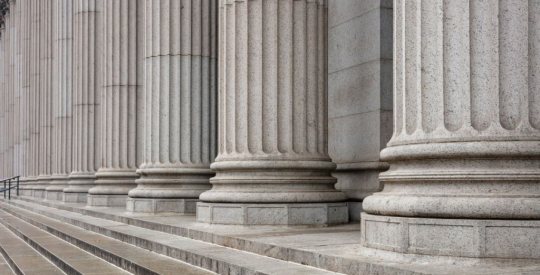The government as of market close Friday had lost 54.9 percent — or $107.7 billion — of an original $195.5 billion in capital investments through the Troubled Asset Relief Program, according to data released Monday by business ethics think-tank Ethisphere Institute. The Ethisphere TARP Index tracks the government’s loss-on-investment based on the idea that as stocks of publicly-traded TARP fund recipients lose value, so too does the government lose a portion of the investment made in the financial sector. “Through the Index, Ethisphere hopes to encourage participating companies to promote transparency, accountability and ethical business practices related to the TARP funds,” officials said in a press statement regarding the index. Top performers on an absolute basis include Morgan Stanley (MS) with a gain of about $700 million, or 7 percent, BB&T Corp. (MSDXP) with a gain of $64 million, or 2 percent, and 1st Source Corp. (SRCE) with a gain of $17.5 million, or 15.7 percent, according to the index. The announcement from Ethisphere came after stocks slipped down to mid-’90s levels at market close Friday. “Fears of the U.S. government nationalizing a number of banks caused the Dow [Jones] to drop to its lowest point in six years, led by many of the financial institutions in the TARP Index,” said Stefan Linssen, a lead research analyst behind the index. “The decline ended when the Obama administration announced it has no plans to nationalize the banking system and reports emerged that the U.S. Treasury will provide more details on how it’s going to handle the financial crisis next week.” Read the Ethisphere report. Although investor fears of banking sector nationalization pulled down stocks of both Citigroup Inc. (C) and Bank of America Corp. (BAC) on Friday, both banks were up in early trading Monday amid reports the government was only seeking to take a massive public share stake in Citi while White House press statements repeated the mantra that banks should remain in private hands. American International Group Inc. (AIG) Monday acknowledged that the company was in discussions with the government “to evaluate potential new alternatives for addressing AIG’s financial challenges,” — but not necessarily seeking additional funds — stoking fears that large financial institutions receiving what Ethisphere labels “calamity investments” cannot be maintained apart from government intervention. Write to Diana Golobay at [email protected]. Disclosure: The author held no relevant investment positions when this story was published. Indirect holdings may exist via mutual fund investments. HW reporters and writers follow a strict disclosure policy, the first in the mortgage trade.
TARP Loses 55% on Investments: Report
Most Popular Articles
Latest Articles
DOJ charges one of America’s top LOs in alleged mortgage fraud scheme
Christopher Gallo was charged with one count of conspiracy to commit bank fraud.
-
Top Producer Review: Features, pricing & alternatives
-
A&D Mortgage names new servicing manager
-
HUD aims to help protect communities from extreme heat
-
Freedom Mortgage founder addresses ’extraordinary’ credit profiles, profitability and products
-
Realty One Group joins growing list of firms to settle commission lawsuits



